If you’re just starting to learn Javascript, know that it’s one of the easiest languages to learn and useful in all forms of web development. It’s one of the most popular languages which means there are many Javascript coders out there willing to help a newbie. You don’t need much, at least not at the beginning, but the more you learn, the more you will want in a laptop.
Major Requirements
The most essential computer components for a Javascript developer are CPU, RAM, and SSD. These three parts determine the speed and efficiency of your programming efforts.
Processor (CPU)
The taskmaster of the computer, the processor analyses your code and manages handing out tasks to all the parts of your computer that need the information. For Javascript development work, you want to make sure that the speed of your processor meets the needs of not just the programming, but all the parts that need to connect including the graphics and other parts of the website design. This is especially true if you like to see your work on many different browsers. For back-end or server work, you need a good processor to build and run your node.js code. Most will agree that a laptop should have the higher end Intel processors in order to meet the speed requirements of web development. The higher end Intel processors come with multi-threading and multi-cores which allow for many more tasks to happen at once. That being said, when you’re just starting out, you can get by with a lesser processor, but you should set your sights on the Intel i5 or i7, preferably in the HQ series.
Memory (RAM)
Programs load information into memory when they are first started up, so the more memory you have available, the quicker the processor can access the information. For this purpose, you want at least 4 GB minimum of memory, but preferably, 8 GB or more. Especially if you’re working with multiple browsers and multiple tabs, a common occurrence for a web developer, you want more RAM.
Storage (SSD)
Storage comes in two flavors. SSD, or Solid State Drive, has no moving parts so is more durable and faster than the somewhat more cumbersome (relatively speaking) HDD, or Hard Disk Drive, which runs with a magnetic head and revolving disk much like the old phonograph. I say somewhat more cumbersome, because in reality, an HDD with 7200 RPM still can get data to the processor reasonably fast. Storage also has what’s known as a page file or virtual memory, a section set aside for the more frequently accessed information. The processor knows to go there first after accessing what it can from RAM. The SSD, while being much faster than HDD, is also somewhat limited in space for the money, so people generally choose between storage space and speed of access. There are occasions however where you can have both. An SSD has a much faster boot time, also a plus, especially if you’re using a dual boot system with both Windows and Linux. If you’re doing a lot of node.js back-end work, a Linux distribution makes more sense, but you’ll still want Windows for other work.
Display
Whether you’re a web designer or full-stack developer, you want excellent display quality in order to see your work at its best. A display has several measurement benchmarks to check. These include resolution which is essential when testing different devices and HiDPI screens, the preferred IPS panel type, brightness measured in nits with 300 nits+ being best, contrast—1000:1+ is optimum, color gamut which measures how dense your color—best at 80%+ sRGB, and finally a touchscreen for testing out touch interactions. Of course its helpful to also have a decent graphics card to go with the display.
Minor Requirements
Portability
While not absolutely essential, especially if you plan to do your work in one setting with access to a power outlet, portability can be a plus. For this you want decent battery life and something that’s relatively lightweight.
Peripherals
If you want a larger screen for seeing what you get, want to add audio and video to your web development work, do some gaming on the side, you might want to have some good ports in order to add a larger monitor and various types of recording equipment, but those things are really up to you.
Recommended Laptops for Javascript
HP Chromebook 14
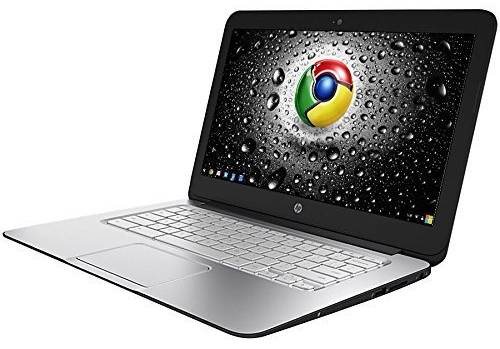
If you just want something to work only with Javascript, this HP Chromebook model should be sufficient and definitely at the bare minimum of price range for this type of machine. What you won’t get is high processor speed, great graphics or display and your storage, while the faster SSD, will be barely enough to hold any applications. It’s definitely not the setup for a heavyweight development server. Given that, it works very well in the cloud, which is where it was intended to work. You can find more information on doing development with the Chromebook at both Tech Republic and Medium. On a positive note, Chromebooks are lightweight making them easy to carry, and the battery life should be more than sufficient for a few hours out and about. Once you get into more serious development, you will likely only use this for a backup.
ASUS VivoBook F556UA-AB54
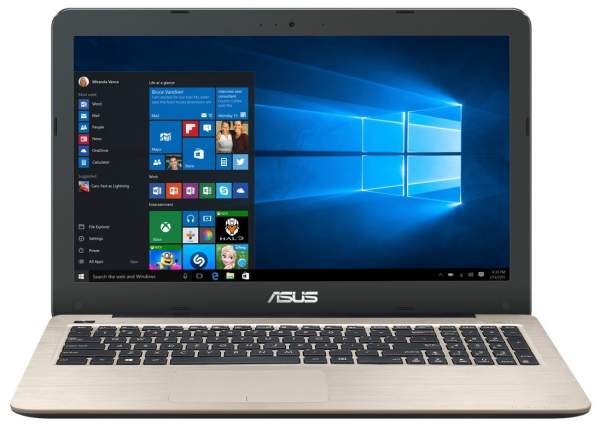
If you want a budget laptop for Javascript, the ASUS VivoBook, should be your laptop of choice. It’s got a great processor at the price, an Intel i5-7200U, that, combined with the 8 GB memory and 250 GB SSD, provides plenty of speed for Javascript. An added bonus is that it’s quiet and does have a USB 3.1 Type C port for adding peripherals.
Lenovo Y700
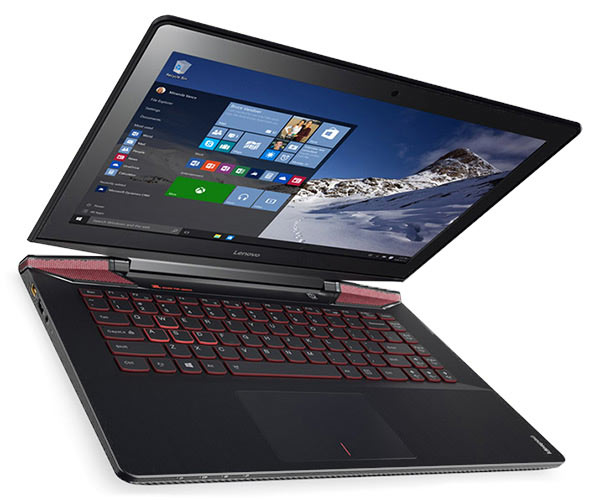
This Lenovo steps it up a bit, still at a decent price. You couldn’t ask for a better processor in a laptop with the i7-6700HQ, and its dedicated graphics card is also high end. When you want a break from coding to do a little gaming, this laptop can handle it. RAM and the SSD are enough to make your programming experience fast and seamless. For portability, though, you might want a different model, as the weight and battery life prevent easy mobility.
MSI GL62M 7RD-256
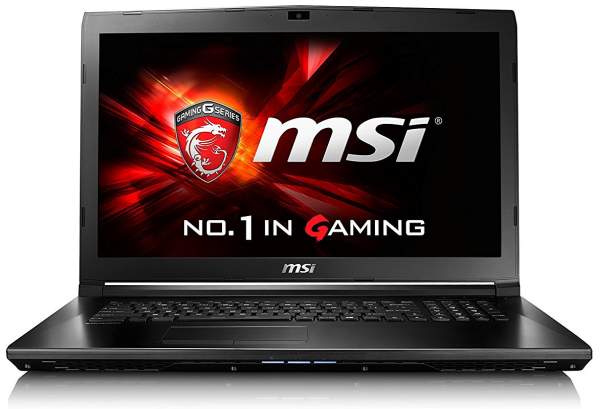
With this MSI, you’re now moving into the big leagues. The processor may not be the fastest, an i5-7300HQ, but it still handles plenty. The dedicated graphics card is high end. You get good color balance with the screen display. Combined with 8 GB memory and a large amount of storage which you can get either with or without the SSD, you shouldn’t experience any lag. As long as the HDD is 7200 RPM, the SSD can be added later, giving you a grand total of 2 TB of storage. Do you want to add peripherals? This machine has all the needed ports, USB, HDMI, and mDP.
Dell XPS 15 XPS9560-5000SLV-PUS
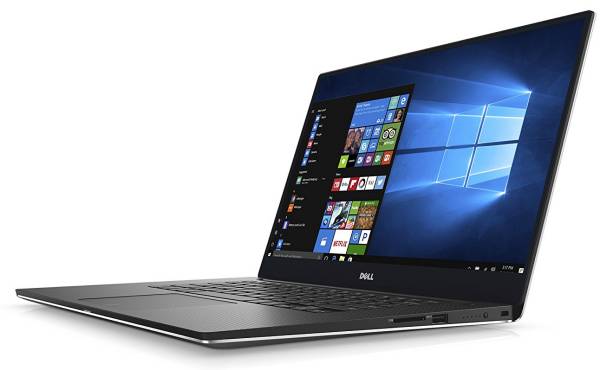
Some say this is the best laptop for development and with good reason. It’s Dell’s latest XPS release, with its great Wi-Fi speed and display. 4K resolution and 400 nits brightness make it easy to use outdoors and lets you see the detail of what you are making. The graphics card will even allow for some decent gaming experience. If you want to really go all out, you can go up to the Intel i7 with 512 GB SSD to get truly the best laptop for Javascript development. Check out what Dave Lee has to say in this video.
Table of Best Laptops for Javascript coding
| Laptop | Price (approx) |
| HP Chromebook 14 | $250 |
| ASUS VivoBook F556UA-AB54 | $550 |
| Lenovo Y700 | $900 |
| MSI GL62M 7RD-256 | $1,200 |
| Dell XPS 15 XPS9560-5000SLV-PUS | $1,600 |
For another take on best laptops, see this Treehouse forum post. While it mentions other machines besides those listed here, the last commenter gives some excellent general information. And finally, as I am wont to do from time to time, here is a list of a couple of websites for learning Javascript.
JS JavaScript.com, the home of all things Javascript from tutorials to the latest news.
Mozilla Developers Network is one of the earliest sites for web development and a bible when it comes to javascript documentation.

I have read the article with terrific satisfaction and even could understand something new that I will use for your own additional
requirements. The guide is clear and bright, with no
further worthless details or else. The language is equally brilliant and
brilliant, so the further I see, the longer I really do like it!
Besides, the info is quite cutting-edge, so just like it.